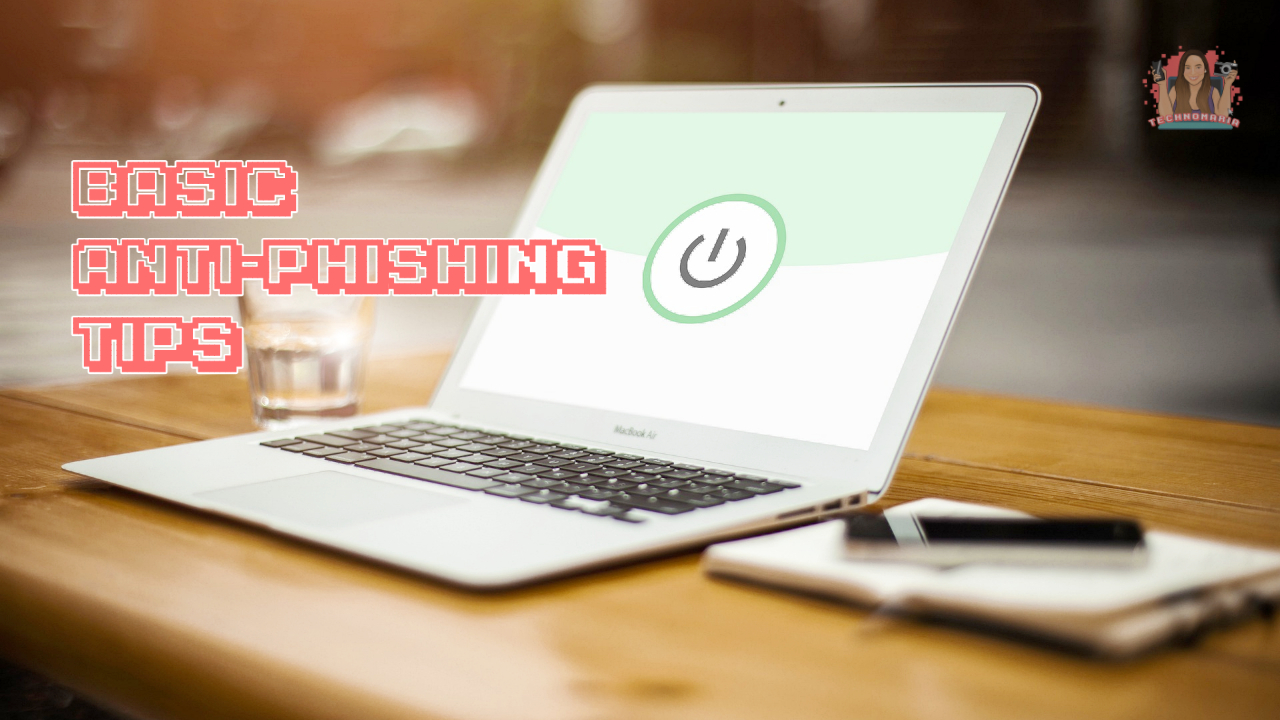Basic Anti-Phishing Tips
You might know or have heard of someone who unwittingly gave out their password or PIN and have their bank and other accounts opened, used, and compromised by hackers. Here are some basic anti-phishing tips that are easy to remember and follow.
Top 3 Anti-Phishing Tips
Here are my top 3 basic tips to make sure you are protected from phishing.
- Think before you click.
- NEVER share your password or PIN.
- Update often.
Basic and easy to follow, right? Read on to know why you must always keep these in mind.
What is Phishing
Some of you might have never heard the term “phishing” though you might have heard stories of it happening. A phishing attack happens when hackers pose or pretend to be a legitimate institution to get access to your passwords, credit cards, and other information.
One of the most common phishing scams is when a hacker pretends to be your bank and contacts you via email, a phone call, or messenger to “warn” you about a hacking attempt or a problem with your account. They then ask for your password, PIN, and other information.
Basic Anti-Phishing Tip: Think Before You Click
As mentioned, phishing involves a hacker pretending to be a legitimate institution. So yes, THINK BEFORE YOU CLICK. ALWAYS. Before you submit any information, check the email address, the number, the URL, the account information. And the entire content of the message asking for information. Make sure to read each and every line and examine every word and letter.

Here is a more specific anti-phishing tip you might have not heard: do not transact if you lack sleep, are intoxicated, or are under medication. Or in any condition where your eyesight and thinking are impaired. This might seem like a funny piece of advice but this is something people do not strictly follow. But must.
When you are literally not seeing things clearly, b9nk.com might seem legit. Or you might be prone to giving away your PIN and password and other vital information to an unverified “agent.” I do not even transfer small amounts or fillout form when I am “lutang” due to lack of sleep or when under medication. It is just not safe. You must protect yourself from hackers and scammers. But you must also protect yourself from your own self.
Share this most basic anti-phishing tip with your family and friends. Especially with those who might not be internet savvy or are prone to be hoodwinked by wrong URLs or fake representatives.
NEVER Share your PIN or Password
When I say never, I mean NEVER. Never ever give out your passwords and PINs. Not even to “customer service representatives,” or “agents.” Not even to your family and friends.
When an offer sounds too good to be true, it probably is. Similarly, if a CSR or an agent, or even a friend seems too helpful to the point of telling you to just give them all your account details so they can help you out, be wary.
Note that legit agents, CSRs, and sites will never ask for your PIN.
Update Often
This is a basic cybersecurity tip that a lot of people do not follow. Update often. Make sure that your operating systems, software, and apps are always updated. Updates usually include updated anti-virus, firewalls, and other cybersecurity measures that will make your gadgets safe. And when I say update often, I also mean your smartphones, smart watches, and other gadgets. Not just your laptops and personal computers.
You should also take time to update or change your passwords and PINs periodically. Typically, it would be ideal to change passwords and PINs every few months. Not just when you get a warning that there is an attempt to hack.
More Anti-Phishing Tips
The three tips I shared are all simple and easy to follow. Unfortunately, because they all seem simple, a lot of people forget or fail to follow them. Do not be a prey to scammers and hackers. Follow these tips always. Make these your habits. Protect yourself and your assets.
Related Post: Basic Cybersecurity Tips
Nowadays, we depend on online transactions more and more. So these are now more important than ever. For those who work from home, buy groceries and food online, pay bills online, doing transactions online have become ordinary and routine. All well and good but never let your guard down. Make sure you are meticulous and alert when transacting online.
Just because an email looks formal and legitimate, it is. Examine everything carefully. Just because someone who seems professional calls you up, does not mean you can give them your information.
Have more anti-phishing tips or maybe questions? Comment them down below.
Decode 2020
Be equipped with cybersecurity know-how to rise above a crisis, make informed decisions, and win the war against cyber threats. DECODE 2021 will be on November 10 – 11, 2021.

DECODE is the premier cybersecurity conference in the Philippines hosted by Trend Micro, a global leader in cybersecurity. To know more about this event and to secure your slot for free, visit https://decodeph.com.
#Decode2021 #DecodePH2021
For unboxing videos of smartphones and gadgets, do not forget to subscribe to my Youtube channel at youtube.com/DiyosaLifeTV. And follow me on social media fb.com/DiyosaBlogger on Facebook, @riajosedavao on Instagram, and @riajose on Twitter for updates on new gadgets, tech news, sale alerts, and more.
